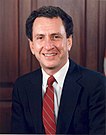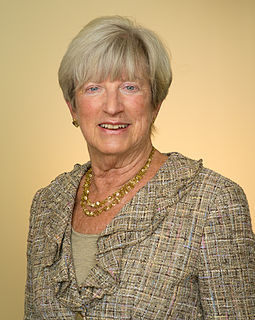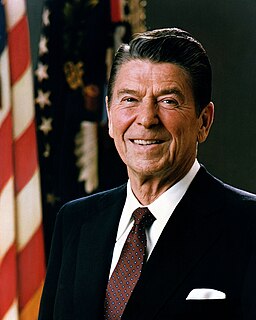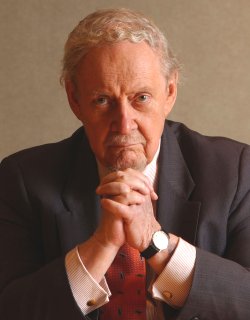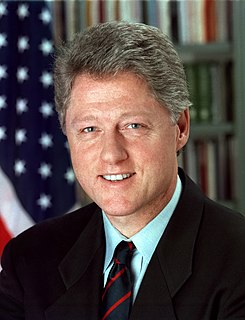
The 2004 United States Senate elections were elections for one-third of the seats in the United States Senate which coincided with the re-election of George W. Bush as president and the United States House election, as well as many state and local elections. Senators who were elected in 1998, known as Senate Class 3, were seeking re-election or retiring in 2004. This was the third consecutive election for Senate Class 3 where the Democrats failed to end up with a net gain. This also marked the first time since 1980 in which a presidential candidate from either party won with coattails in the Senate. As of 2018, these are the last elections held during a Presidential election year in which the Republicans made a net gain of seats.
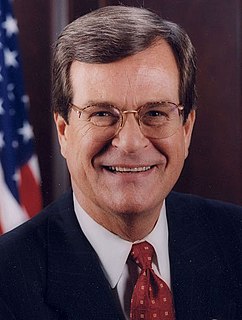
The 1998 United States Senate elections were held on November 3 and seen as an even contest between the Republican Party and Democratic Party. While the Democrats had to defend more seats up for election, Republican attacks on the morality of President Bill Clinton failed to connect with voters and anticipated Republican gains did not materialize. The Republicans picked up open seats in Ohio and Kentucky and narrowly defeated Democratic incumbent Carol Moseley Braun (Illinois), but these were cancelled out by the Democrats' gain of an open seat in Indiana and defeats of Republican Senators Al D'Amato and Lauch Faircloth. The balance of the Senate remained unchanged at 55–45 in favor of the Republicans. With Democrats gaining five seats in the House of Representatives, this marked the first time since 1934 that the out-of-presidency party failed to gain congressional seats in a mid-term election, and the first time since 1822 that the party not in control of the White House failed to gain seats in the mid-term election of a President's second term. These are the last senate elections that resulted in no net change in the balance of power.
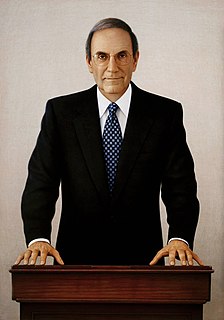
The 1992 United States Senate elections, held November 3, 1992, were elections for the United States Senate that coincided with Bill Clinton's victory the presidential election. Despite the presidential victory, Democrats had a net loss of a seat in the general elections, and only managed to break even by winning a seat in a special election.

The 1986 United States Senate elections was an election for the United States Senate in the middle of Ronald Reagan's second presidential term. The Republicans had to defend an unusually large number of freshman Senate incumbents who had been elected on President Ronald Reagan's coattails in 1980. Democrats won a net of eight seats, defeating seven freshman incumbents and regaining control of the Senate for the first time since January 1981. The party not controlling the presidency gained seats, as usually occurs in mid-term elections.

The 1980 United States Senate elections coincided with Ronald Reagan's victory in the presidential election. Reagan's large margin of victory over incumbent Jimmy Carter pulled in many Democratic voters and gave a huge boost to Republican Senate candidates.

Allyson Young Schwartz is a former member of the United States House of Representatives for Pennsylvania's 13th congressional district, serving from 2005–2015. She is a member of the Democratic Party. The district included parts of Montgomery County and Northeast Philadelphia. She was also National Chair for Recruitment and Candidate Services for the Democratic Congressional Campaign Committee. In the 2014 election, Schwartz was a candidate for the Democratic nomination for Governor of Pennsylvania, but was defeated in the primary.
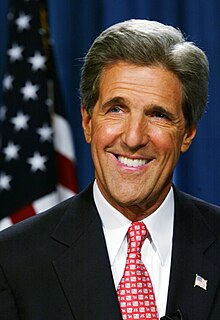
The 2004 United States presidential election in Pennsylvania took place on November 2, 2004, and was part of the 2004 United States presidential election. Voters chose 21 representatives, or electors to the Electoral College, who voted for president and vice president.

The Pennsylvania gubernatorial election of 2006 was held on November 7, 2006 and included the races for the Governor of Pennsylvania and Lieutenant Governor of Pennsylvania.

The 2010 United States Senate election in Pennsylvania took place on November 2, 2010, during the 2010 midterm elections. Incumbent Republican-turned-Democrat U.S. Senator Arlen Specter ran for reelection to a sixth term, but lost in the Democratic primary to Joe Sestak. Republican nominee Pat Toomey then won the seat.

The 2004 United States Senate election in Pennsylvania was held on November 2, 2004. Incumbent Republican U.S. Senator Arlen Specter won re-election to a fifth term.

The 2010 United States Senate election in Maryland was held on November 2, 2010. Primary elections were held on September 14, 2010. Incumbent Democratic U.S. Senator Barbara Mikulski won re-election to a fifth term.

The Pennsylvania gubernatorial election of 1994 was held on November 8, 1994. The incumbent governor, Bob Casey, Sr. (Democrat), was barred from seeking a third term by the state constitution. The Republican Party nominated Congressman Tom Ridge, while the Democrats nominated Mark Singel, Casey's lieutenant governor. Ridge went on to win the race with 45% of the vote. Singel finished with 39%, and Constitution Party candidate Peg Luksik finished third, garnering 12% of the vote.

The 1998 United States Senate election in Pennsylvania was held November 3, 1998. Incumbent Republican U.S. Senator Arlen Specter won re-election to a fourth term.

The Pennsylvania gubernatorial election of 1978 was held on November 7, 1978 between Republican Dick Thornburgh and Democrat Pete Flaherty.
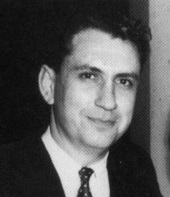
The 1986 United States Senate election in Pennsylvania was held on November 4, 1986. Incumbent Republican U.S. Senator Arlen Specter won re-election to a second term.

The 1980 United States Senate election in Pennsylvania was held on November 4, 1980. Incumbent Republican U.S. Senator Richard Schweiker decided to retire, instead of seeking a third term. Republican nominee Arlen Specter won the open seat, defeating Democratic nominee Peter F. Flaherty.

The Democratic primary for the 2010 United States Senate election in Pennsylvania took place on May 18, 2010, when Congressman Joe Sestak defeated incumbent Arlen Specter, which led to the end of Specter's five-term Senatorial career. Just prior to the start of the primary campaign, after serving in the Senate as a Republican for 29 years, Specter had switched to the Democratic Party in anticipation of a difficult primary challenge by Pat Toomey; Sestak was ultimately defeated by Toomey in the general election. Political observers and journalists described the race between Specter and Sestak as one of the bitterest and most watched of all the 2010 primary elections.

The 1976 United States Senate election in Pennsylvania was held on November 2, 1976. Incumbent Republican U.S. Senator and Minority Leader Hugh Scott decided to retire. Republican John Heinz won the open seat.

